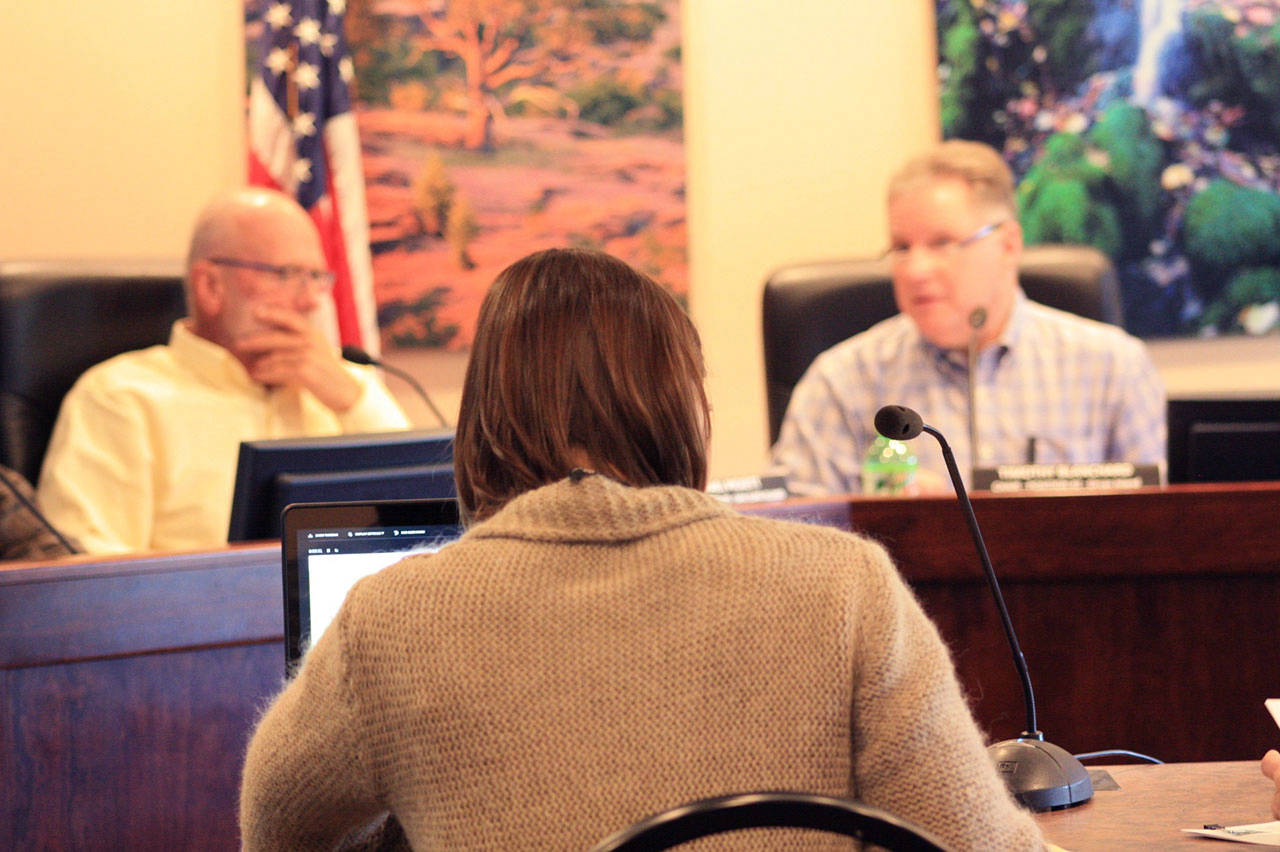Vacation rental owners in the county may need to pay an annual fee to continue operations.
That’s what the San Juan County Planning Commission will recommend to the county council in their May 19 hearing on proposed changes to vacation rental permit code.
“If the fee isn’t swallowable, I don’t know why we’d have any more rules,” said Commissioner Brent Snow.
County officials are updating vacation rental code due to complaints that they are nuisances, difficult to penalize and deplete the county’s long-term, affordable rentals.
Collecting a fee, said Snow, would help county officials determine permits that are actively used, which is not currently clear. The fee which was not given a dollar amount could also provide the salary for one additional county employee to enforce vacation rental code.
Director of Community Development Erika Shook has said in previous meetings that there is one code enforcement officer in the county. It takes him about 20 minutes to locate vacation rentals that don’t include permit numbers in online advertisements.
“If this is an important thing to regulate, without a clear fee to cover the cost, of both enforcement regulation and code modification, it’s back to what we do so much in this county — a whole bunch of regulation and zero practical mechanism or staff,” said Snow.
The fee could be collected when all short-term permit owners complete their annual certification of compliance, which is a proposed code amendment. Shook said the proposal will be included in a draft ordinance, which will be presented to the planning commission for a July hearing, where people can comment.
Since about 1997, county officials had to approve rules of conduct at vacation rentals, said Shook. The annual certification of compliance will include reviewing these rules, as well as mandating others to make rentals safer, like requiring annual fire inspections.
However, advised Shook, mandating yearly fire inspections for the current 971 vacation rentals may cost the county too much money and time.
Instead, she suggested permit owners could complete a free online form, indicating that they have met requirements like installing smoke detectors. They could also have fire inspections, like other county businesses, about every two years.
Many at the last public hearing were concerned about which sections of the proposed changes applied to new or current permit holders. A section was added to the draft to differentiate requirements between the two. New permits will expire every five years, but current permit owners will have to prove they certify with the aforementioned compliances every five years.
Certifying compliance documentation needs to annual and filed with the county every year in the five-year period, otherwise, new permits will expire in year five. Current permit holders will be asked to comply through a letter from county officials before revocation.
“Never was the intent to make the people who already have a permit, get a new permit, or change the conditions for permit approval,” said Shook.
The planning commission will recommend a local contact is listed for all vacation rentals. That way, renters will have a nearby contact to handle emergencies immediately.
Commissioners will also recommend advertised, unpermitted vacation rental owners be charged a penalty. The penalty would be the cost of a conditional-use permit, which is $2,300 but could change over the years due to inflation.
The number of guests, suggest commissioners, should be determined by the number of bedrooms on the building permits, plus an additional two guests. Children under age 2 would not be considered a guest. If owners request more guests than their building permit allows, county officials will look at the number of people the buildings’ septic systems holds.
Since it would be hard to enforce noise levels by decibels, commissioners decided not to monitor sound that way. Instead, they suggest noise be limited between 10 p.m. and 8 a.m.
Shook suggested some proposed changes be included in the county’s comprehensive plan update, and not the vacation rental code changes. These included whether vacation rentals should be listed as residential zoning, as they currently are, or commercial since they are businesses.
It also included whether detached guest houses, permitted by June 29, 2007, should remain prohibited from becoming vacation rentals. Some commissioners felt owners should be allowed to decide to rent one building on their property, whether it’s the main house or guest.
For more information on vacation rental code changes, visit www.sanjuanco.com/1300/Vacation-Rental-Code-Amendment.
Vacation Rental Map
County officials have mapped every vacation rental permit in the county since 1990. Find the map by visiting data.sjcgis.org or www.sanjuanjournal.com and searching for “Vacation rental permits.” The map includes names of permit owners, addresses and permit numbers. The data can be also be downloaded.
“I like this map because now when people call to complain we can say ‘oops, nothing is permitted on this street,’” said San Juan County Planning Manager Linda Kuller.
Those who do not see their permit listed can contact DCDpermits@sanjuanco.com with their name, parcel number and permit number to update the map. If the permit number is unknown, give the name of the person who applied for the permit.



